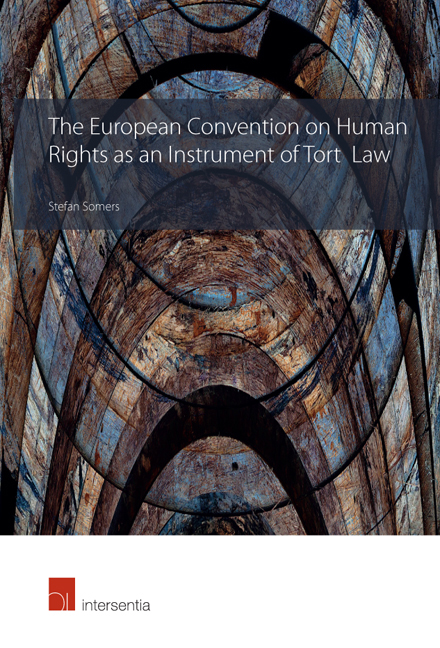Book contents
- Frontmatter
- Dedication
- Contents
- List of Cases
- Introduction
- Chapter 1 Human Rights in Horizontal Relations
- Chapter 2 Articles 13 and 41 ECHR and State Liability
- Chapter 3 The Interaction between Articles 13 and 41 ECHR and Liability in Horizontal Relations
- Chapter 4 Tort Liability as a Violation of Human Rights
- Chapter 5 Article 41 as an Alternative Tort Law System
- Chapter 6 General Outline of Article 41 of the Convention
- Chapter 7 Damages
- Chapter 8 Fault and Blameworthiness
- Chapter 9 Causality
- Chapter 10 Restitution
- Conclusion
- Bibliography
- About the Author
Chapter 2 - Articles 13 and 41 ECHR and State Liability
Published online by Cambridge University Press: 31 January 2019
- Frontmatter
- Dedication
- Contents
- List of Cases
- Introduction
- Chapter 1 Human Rights in Horizontal Relations
- Chapter 2 Articles 13 and 41 ECHR and State Liability
- Chapter 3 The Interaction between Articles 13 and 41 ECHR and Liability in Horizontal Relations
- Chapter 4 Tort Liability as a Violation of Human Rights
- Chapter 5 Article 41 as an Alternative Tort Law System
- Chapter 6 General Outline of Article 41 of the Convention
- Chapter 7 Damages
- Chapter 8 Fault and Blameworthiness
- Chapter 9 Causality
- Chapter 10 Restitution
- Conclusion
- Bibliography
- About the Author
Summary
Now that this book has shown that human rights are relevant for the relations between private persons, and thus for private law, attention must be paid to the fact that the Convention contains provisions that can be used in the more specific sphere of damages. It is an established practice of the Court to provide compensation for the victims of human rights violations under Art. 41. Thus, it must be investigated whether this provision can have an influence on national tort law. Based on this line of reasoning, this chapter will argue that the Convention is not only relevant for private law in general, but also for national tort law specifically, mainly by reading Art. 41 in conjunction with Art. 13.
ARTICLE 13 AND THE REASONABLE TIME REQUIREMENT
Article 13 requires states to provide effective remedies in national law in order to prevent violations of the Convention from occurring or to compensate for the violations that have already occurred. The idea of this provision is clear: if the national law provides such instruments, human rights victims no longer need to go to Strasbourg. Thanks to this provision, people are not only entitled to the substantive rights of the Convention, but they are also entitled to protection of these rights under the national legal order. Nevertheless, Art. 13 is not the most notable provision of the Convention. This is so because it is a subsidiary or parasitic provision: one can only invoke this provision in conjunction with a substantial treaty provision. It is, however, not a requirement that the other treaty provision is violated. Article 13 is already applicable if someone proves he has an ‘arguable claim’ that a substantial treaty provision is violated. Concerning the application of Art. 13, the question arises as to what the Court considers to be an effective remedy. The Court has not developed a blueprint as to how it approaches this question. Instead it applies the provision in a casuistic way. The basis of this jurisprudence is that a remedy must be effective not only in a theoretical way, but also in a practical way.
With regard to the relationship between the Convention and tort law, the question is raised as to whether a claim in tort law can provide an effective remedy. An important case in this regard is Kudla.
- Type
- Chapter
- Information
- Publisher: IntersentiaPrint publication year: 2018



